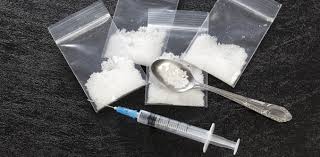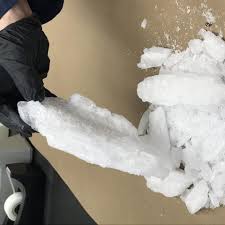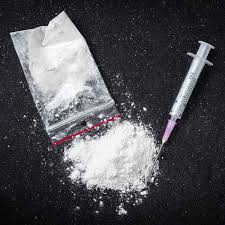
Iliyasu Abdullahi Bah
A disturbing public health and security crisis is emerging in Northeast Nigeria, as youth across the region increasingly turn to a highly addictive and dangerous synthetic drug Methamphetamine, commonly known as ICE. This trend represents a significant shift in the landscape of substance abuse, moving beyond traditional drugs to a more potent and devastating stimulant.
According to medical sources like Healthdirect and the World Health Organization (WHO), Methamphetamine is a powerful, illegal stimulant drug that belongs to the amphetamine family. ICE is the crystalline form of methamphetamine. It is significantly purer and more powerful than other amphetamines.
It is typically appears as clear, white, or brownish crystal shards that resemble ice or glass fragments. It has a strong chemical smell and a bitter taste. Ice can be smoked, injected, snorted, or swallowed, with smoking and injection leading to the most immediate and intense high.
Its use is linked to severe chronic health problems, including Anxiety, paranoia, hallucinations, aggression, and meth-induced psychosis, Severe dental decay, heart damage, stroke, kidney failure, liver damage, and extreme weight loss.
It is notoriously one of the most addictive substances, creating a powerful psychological and physical dependence that is extremely difficult to overcome. Said Jalo Ibrahim a pharmacist.
An official from the National Drug Law Enforcement Agency (NDLEA), speaking to Journal Nigeria on condition of anonymity, confirmed that the use of Tramadol and codeine based syrups has seen a notable decrease. However, this positive development has been offset by the rapid rise of ICE, which has “become the subject matter” for a new generation of users.

Suleiman Hamisu a community health advocate in the region, provided quantitative context, estimating that the usage of drugs like Tramadol, exxol and syrup has been cut by up to 40 percent.
He attributed this decline to the successful efforts of the NDLEA in cordoning off supplies, making these drugs less available and more expensive. Consequently, he stated, “Most of the youth have taken a step to ice, which is very dangerous to human health.”
The NDLEA is actively combating the drug epidemic on multiple fronts, demonstrating a nationwide commitment to destroying cultivation and intercepting shipments.
Recently, the NDLEA announced a major operation where it destroyed 75,544 kilograms (over 75 tons) of cannabis skunk. These operations targeted massive plantations across forests in In Taraba, Edo State:14,233.37 kg destroyed across 5.69 hectares in Ebule Forest, Owan West LGA including Delta and Ondo State as an additional to operations conducted, seizing and destroying tons of illicit crops.
The agency continues to seize large quantities of drugs, in The NDLEA Kano State Command arrested a 29 year old male suspect with 7,000 capsules of Tramadol. The arrest was made along the Zaria-Kano Road by operatives from the Kiru Area Command, intercepting the drugs while in transit from Lagos.
The rise in hard drug consumption is not just a health issue, it is a primary driver of social deviance and violent crime. Law enforcement operatives are making milestones in apprehending dealers and seizing substances that are directly linked to the devastation of communities.

The use of stimulants like ICE is empirically connected to a surge in violent crimes such as armed robbery, phone snatching, burglary, banditry, Kidnapping for ransom, thuggery and General Insecurity including aggression induced by the drugs contribute to a more volatile and unsafe environment for all citizens.
This multifaceted crisis demands a coordinated response involving robust law enforcement, expanded public health education on the dangers of ICE, and increased investment in addiction treatment and rehabilitation facilities to address this growing threat.
